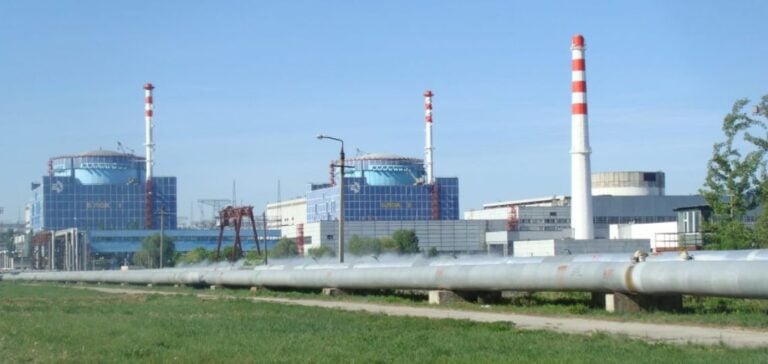The groundbreaking ceremony for the Khmelnitsky nuclear power plant began with the laying of the first concrete for the drainage channel, marking the launch of units 5 and 6. These units use Westinghouse AP1000 reactor technology, the first of their kind in Ukraine. Once completed, these facilities will significantly increase the country’s energy production capacity, reducing Ukraine’s dependence on Russian nuclear power.
Geopolitical importance of the project
Herman Halushchenko, Ukraine’s Energy Minister, sees the project as “geopolitically major” and has stressed its importance in “ousting the Russians from the European nuclear energy market […] through cooperation in the construction of a new type of reactor for Europe.”
Strategic partnership and ongoing development
Petro Kotin, CEO of Energoatom, said, “Westinghouse is our reliable strategic partner: both in the development and loading of alternative fuel into VVER reactors, and in the creation of a fuel production line in Ukraine and the construction of new power units… during the war, we didn’t stop, but on the contrary deepened and accelerated our cooperation.” He added that the output of units 5 and 6 would exceed that of the Zaporizhzhia plant, making Khmelnitsky “the largest nuclear power plant in Europe.”
American support and future implications
Patrick Fragman, President and CEO of Westinghouse Electric Company, said: “We are opening a new stage, a new milestone in the cooperation between Westinghouse and Energoatom… Ukraine will get clean, affordable energy with the use of economically viable technologies.” U.S. Ambassador to Ukraine Bridget Brink emphasized Ukraine’s increased need for energy facilities, especially with the current infrastructure regularly targeted by bombardments.
This partnership between Ukraine and Westinghouse underlines a significant effort to diversify the country’s energy sources and strengthen its nuclear infrastructure, with potential implications for regional energy dynamics in Europe.






















